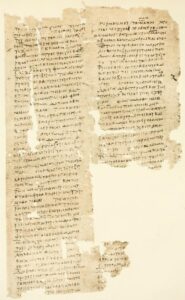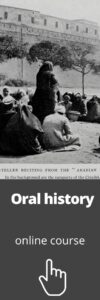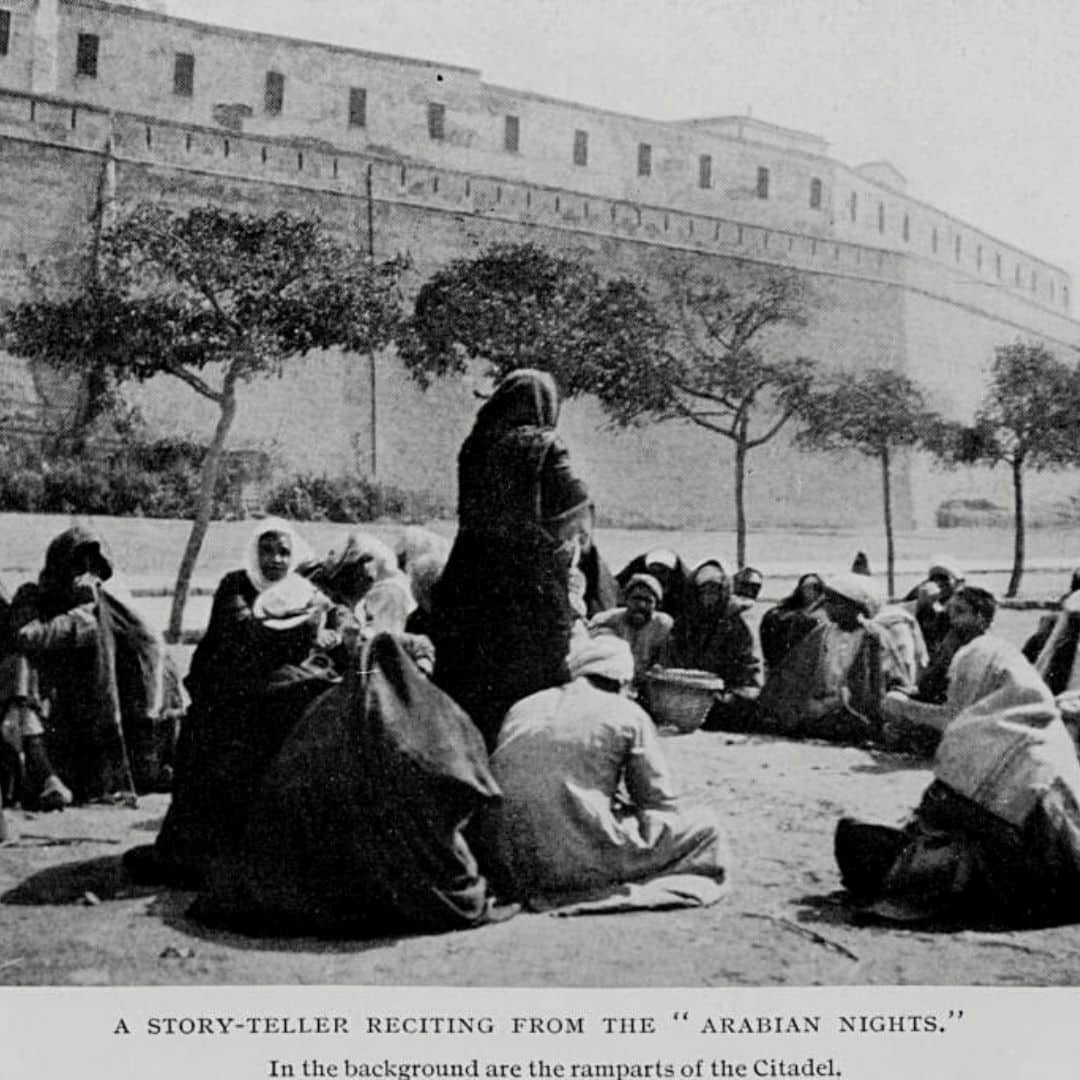For centuries oral sources were used as the only way to convey the history of the ancestors.
In this article we will look at the importance of oral sources in history.
By Yolanda Silva, author of the online course Oral History.
Oral sources and oral history
In the 5th century BC, the Greek historian Thucydides transposed to the written word the Peloponnesian War reports.
This represented one of the first and most notable examples of the importance of recording the traditions and stories passed on from generation to generation.

fragment of a 1st-century manuscript
However, the dissemination of the printed word will soon obscure the spoken word.
Historiographical practices reduced the importance of oral sources, which also resulted in reducing the significance of oral testimonies.
What are the uses of oral sources?
Some authors throughout history will try to express their interest in oral tradition, studying local beliefs and customs that result in literary productions such as Robert Burns did in the 18th century.
and customs that result in literary productions such as Robert Burns did in the 18th century.
He collected a number of poems and songs thus preserving a good part of the Scottish folk.
By the mid-twentieth century, historians and archivists start launching the first initiatives in some universities and historical societies.
Essentially bases on researching and collecting local testimonies and folklore that, in many cases, included aspects of the development of language itself.
Thus emerges a new discipline within History.
In order to get a more concrete and comprehensive picture of the Past, Oral History uses a process of registration and preservation of information from primary sorces – the oral sources -, making it available to the public.
The methodology of Oral History is based primarily on the interview, a thought-out and structured process, which aims to fill certain gaps that records and ‘official’ documents do not.
Oral history – the interview and the project | Online Course
Objectives
◌ Recognising the importance of Oral History in the preservation of Intangible Heritage.
◌ Identifying and describing the key elements needed to develop an Oral History project.
◌ Knowing how to recognise potential problems related to the implementation of the project (particularly during the interview and processing of the information).
◌ Applying the best practices during a project of Oral History.
◌ Recognising and applying the correct procedures during the interview process.
◌ Identifying key materials and equipment necessary for the interview process.
Online course with certificate
◌ Identifying methods and recognising the importance of making the data available to the public.

